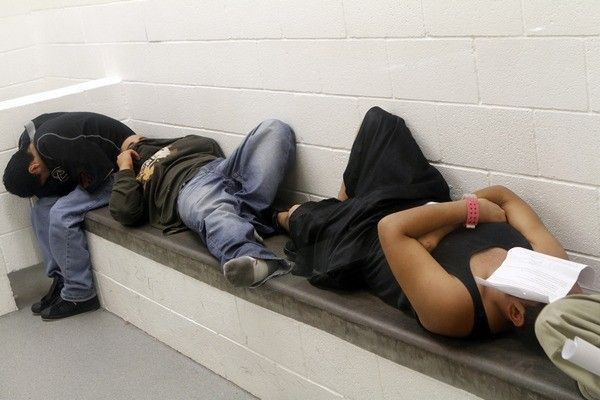Immigration Reform 2014: Growing Up In The US Under Fear Mom Will Be Deported

Ricardo Zarate is a U.S. citizen, but he spent his childhood fearful of authorities because of his mother’s illegal status. “Whenever I saw police or immigration patrol vehicles, I always thought, 'That could be my mother in the back of that van,’” he said.
President Barack Obama will detail his proposed overhaul of the nation's immigration policy in a televised speech Thursday night. The proposal, which will not be vetted by Congress, is expected to protect up to 5 million immigrants without legal status from deportation. For millions of people like Zarate, the change could make all the difference in terms of personal security and fully intregrating into American society.
Zarate’s parents met in California after emigrating from Mexico in the late 1980s and started a family together. Zarate and his two sisters were born in the United States after his mother crossed the border in 1989 at age 17. Although Zarate’s mother was an unauthorized immigrant, his father was able to receive legal status from an amnesty program in the 1990s, which allowed him to get a job and provide for his family of five. It sounds like the makings of an American dream, but the reality was far from it. “It was shocking what we thought was normal,” Zarate said.
Zarate, 23, and his family suffered decades of domestic violence at the hands of his father because his mother was terrified to contact authorities for fear of being deported and separated from her children. As an illegal immigrant who did not speak English, was unauthorized to work and had no family or friends outside of Mexico, Zarate’s mother couldn’t leave her abusive husband because she had nowhere to go and no means of providing for herself and her three children.
In the heated national debate over U.S. immigration policy, Zarate said more light should be cast on the thousands of families like his who endure years of domestic abuse because they depend on the legal and economic protection of a household member. “Immigration reform for many women and their families could mean the ability to not live in fear anymore,” said Zarate.
His mother was eventually able to receive legal status in August after leaving her husband and petitioning for legal status under the Violence Against Women Act, which expedited her authorization. “It has totally changed her life,” Zarate said. His mother used to weigh the consequences of driving to the grocery store because she knew at any point she could get pulled over by a police officer, who would ask for proof of citizenship. “It took immense amount of courage to even go outside, to do everyday things that people take for granted,” Zarate said. “It’s a small thing that means a lot to us.”
At 43 years of age, Zarate’s mother is now able to rebuild her American life without paranoia. As an authorized immigrant, she is able to travel and visit her family in Mexico for the first time in 26 years. She's taking English classes and has obtained a job. She can drive a car without fear of being pulled over. “She is going out to restaurants and shops for the first time ever,” Zarate said. “When you carry a weight that heavy for so long, it’s fascinating to see the liberation.”
The burden of his mother’s illegal status that kept his family in the shadows of fear and domestic violence has finally been lifted. In anticipation of Obama's speech Thursday, Zarate said he hoped an opportunity to live life freely and fully will come sooner rather than later for the millions of undocumented immigrants and their families living in the United States. “The first priority of a nation in terms of immigration reform should be to start helping people heal,” Zarate said. “Children and families shouldn’t fall through cracks just because there’s a stalemate in how exactly we should deal with these things.”
© Copyright IBTimes 2024. All rights reserved.





















